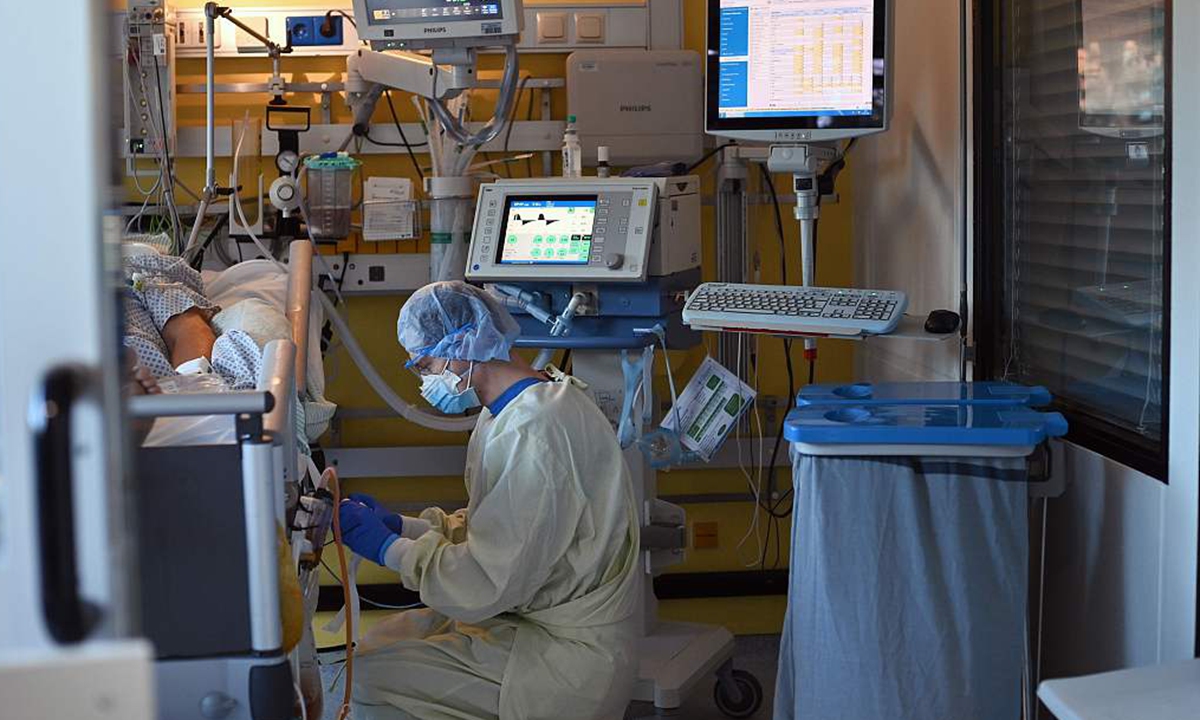
Photo:VCG
Germany's COVID-19 caseload has topped 1 million after 22,806 new infections were reported within one day, the Robert Koch Institute (RKI) announced on Friday.
The daily COVID-19-related fatality rate continued to climb and reached a new record of 426, totaling 15,686 deaths, according to data from RKI, the federal government agency for disease control and prevention.
The number of COVID-19 patients in intensive care units "increased dramatically", from 655 patients in mid-October to 3,395, according to the RKI. Numbers are still rising but the dynamics has slowed down slightly.
Because of the observed increase in transmissions, the German population should "commit itself to infection prevention and control," the RKI urged in its latest daily report.
"We have without a doubt another difficult few months ahead of us," said Chancellor Angela Merkel during her speech in the Bundestag on Thursday. During the COVID-19 pandemic, "each and every one of us can actively contribute so that we can get through this time well."
Following rising COVID-19 infection rates in the country, the federal and state governments extended a partial lockdown including the closure of restaurants, bars, theaters and leisure facilities until Dec. 20.
The German government is seeking to reduce the number of COVID-19 infections to such an extent that local health authorities were once again able to trace and break the infection chains. To that end, an incidence of less than 50 per 100,000 inhabitants in seven days would need to be reached.
The average national seven-day incidence rate in Germany was 138 on Thursday. According to the RKI, 20 districts showed an incidence rate between 250 and 500 while one district even had a seven-day incidence rate of 629.
